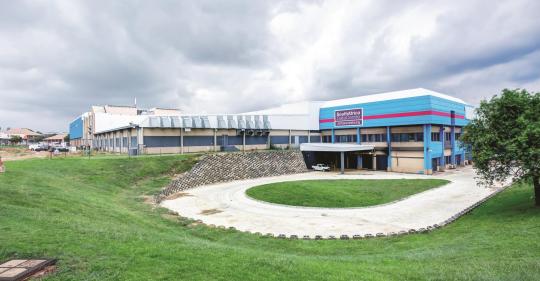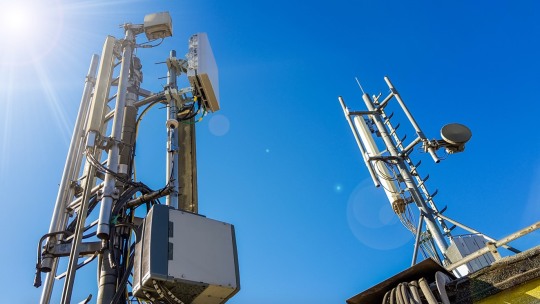#Econet
Explore tagged Tumblr posts
Text

Self Top Up Zimbabwe Online
Hot Recharge offers a fast and secure way to self top up in Zimbabwe online. Instantly recharge your mobile airtime for Econet, NetOne, and Telecel from anywhere, anytime. With multiple payment options and a user-friendly platform, Hot Recharge ensures a seamless and hassle-free experience. Stay connected effortlessly!
0 notes
Text

#Luminaries - Strive Masiyiwa
Strive Masiyiwa (born 29 January 1961) is a London-based Zimbabwean billionaire businessman and philanthropist. He is the founder and executive chairman of international technology groups Econet Global and Cassava Technologies.
#gentlemans code#finance#business#leader#Econet#Strive Masiyiwa#businessman#Telecoms#information technology#Zimbabwe#communications#billionaire#development#enterprise#philanthropy
0 notes
Text
Strive Masiyiwa : Le Visionnaire derrière Econet Wireless – Révolutionnant la Télécommunication en Afrique
Dans le paysage dynamique des affaires africaines, peu de noms résonnent avec autant de force et d’impact que celui de Strive Masiyiwa. Fondateur et président exécutif d’Econet Wireless, Masiyiwa est bien plus qu’un simple homme d’affaires ; il est un véritable visionnaire dont l’entreprise a fondamentalement transformé la manière dont les Africains communiquent, accèdent à l’information et…
#Econet Wireless#entrepreneur africain#impact économique Afrique#inclusion numérique#innovation technologique#leadership visionnaire#milliardaire africain#Strive Masiyiwa#success story africaine.#télécommunications Afrique
0 notes
Text
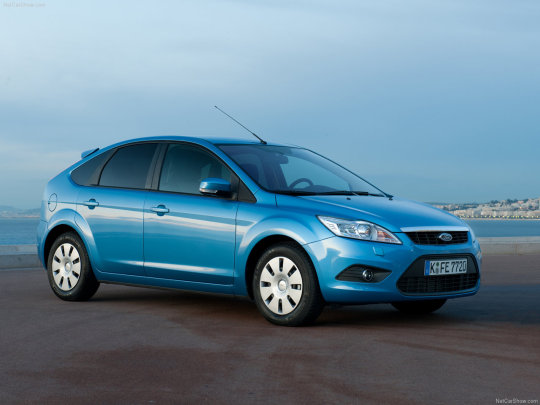
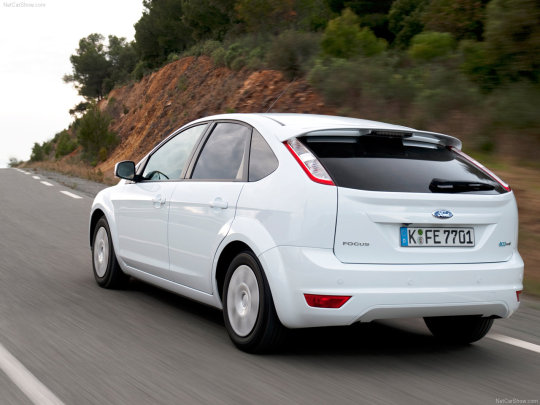
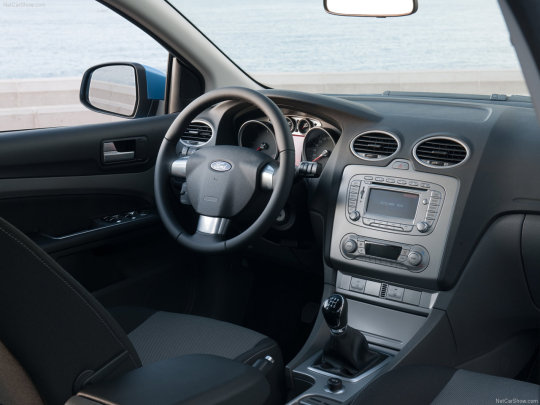
2010 Ford Focus ECOnetic
My tumblr-blogs: https://www.tumblr.com/blog/germancarssince1946 & https://www.tumblr.com/blog/frenchcarssince1946 & https://www.tumblr.com/blog/englishcarssince1946 & https://www.tumblr.com/blog/italiancarssince1946 & https://www.tumblr.com/blog/japanesecarssince1947
1 note
·
View note
Text

Strive Masiyiwa (January 29, 1961) is a businessman and philanthropist. He is the founder and chairman of Econet Wireless International and Zimbabwe’s first billionaire.
He was born in Zimbabwe. His father became a businessman and his mother was an entrepreneur. He was told by a senior officer that the conflict was almost over and that the country needed people like him to help rebuild it. He took the officer’s advice and earned a BS in Electrical and Electronic Engineering from the University of Wales.
He joined Zimbabwe Posts and Telecommunications Corporations as a senior engineer and became a principal engineer within the company.
He founded and financed Econet Wireless. Econet obtained a license to provide cell phone service in Zimbabwe. He became involved with the privately held London-based Liquid Telecom Group. He was the first African to be appointed a Netflix Board member.
He and his wife, the former Tsitsi Maramba, established the Capernaum Trust which is a support program designed to educate Africa’s orphans and vulnerable children. He is involved with Bill Gates and Warren Buffett’s Giving Pledge initiative. He is co-chair of Grow Africa and has helped organize $15 billion for African agriculture. His Ambassador Andrew Young Scholarship, provides funds to send African Students to Morehouse College. He was awarded the Freedom Award by the International Rescue Committee for his contributions towards supporting refugees and championing the cause of dignity, individual freedom, and liberty.
They have six children. He holds an honorary degree from Nelson Mandela Metropolitan University and has been named an influential figure by many publications including Time magazine and Forbes. #africanhistory365 #africanexcellence
4 notes
·
View notes
Text
It’s easy to forget that people of African descent come from a rich legacy of community and wealth-building as the first kings and queens on the planet. In a world that stifles Black progress and seeks to recreate a Eurocentric world-view of history, the brilliance of Black business owners shines through like a diamond in the rough.
As communities of the African diaspora, from Historic Greenwood District to Cape Town, South Africa, seek to build generational wealth after decades and centuries of pillaging and persecution, a few exceptional entrepreneurs stand out. The 10 wealthiest people of African descent prove the potential that’s often locked away inside Black people everywhere.
Using data from Forbes, which tracks the net worth of the wealthiest human beings in the world, The Black Wall Street Times compiled a list of the top 10 wealthiest Black people. Out of the 10, four are American, and three are Nigerian. Additionally, two are women, and eight are men.
What lessons can we learn from their success? Let’s meet them.
10. Folorunsho Alakija — Nigerian businesswoman and philanthropist.
Alakija has an estimated net worth of $1 billion as of 2020. Alakija is the founder and executive vice chairman of Famfa Oil, one of Nigeria’s largest oil exploration companies. Entering the business world with a fashion label, Alakija rose to financial prestige by cultivating high-profile clients, including the wife of former Nigerian president Ibrahim Babangida. At 72 years old, Forbes ranks her as the 20th wealthiest person in Africa and the wealthiest woman on the continent.
I have faced many hurdles in my own life, but I have learned that with the right mindset, every challenge is a chance to create bigger and better opportunities. pic.twitter.com/KJDholX9tx— Folorunso Alakija (@alakijaofficial) March 20, 2023
9. Mohammed Ibrahim — British-Sudanese businessman and philanthropist.
Ibrahim has an estimated net worth of $1.2 billion as of 2023. Born in Sudan, he’s the founder and chairman of Celtel International, one of Africa’s largest mobile phone companies. He also established the Mo Ibrahim Foundation to support good governance in Africa. He sold Celtel International to Kuwait’s Mobile Telecommunications Company for a whopping $3.4 billion in 2005, pocketing $1.4 billion in the process.
— startupAFRICA (@startupafrimag) April 28, 2019
8. Michael Jordan — Former NBA player and American businessman.
The six-time NBA champion has stayed busy in his retirement years. He’s now a successful businessman with an estimated net worth of $2 billion as of 2023. Jordan is the majority owner of the Charlotte Hornets franchise and has several other investments in business ventures across the world.
7. Strive Masiyiwa — Zimbabwean businessman and philanthropist.
Masiyiwa has an estimated net worth of $2.1 billion as of 2023. In 1998, he overcame government opposition to launch the mobile phone network Econet Wireless Zimbabwe. He also owns stakes in fiber optic and fintech companies in several African countries. Together with his wife Tsitsi, he found HigherLife Foundation. The organization supports orphaned and low-income children in Zimbabwe, South Africa, Burundi and Lesotho.
I met Strive Masiyiwa’s Higher Life Foundation & Celebration Ministries International fact finding team that will help Joyce Banda Foundation International provide immediate & long term help to cyclone Freddy victims. Our people need urgent help. Looking forward to their support. pic.twitter.com/SvRuG7CSB0— H.E. Dr. Joyce Banda (@DrJoyceBanda) March 20, 2023
6. Oprah Winfrey — American media mogul and philanthropist.
Arguably one of the most famous Black American women, Winfrey has a net worth of $2.5 billion as of 2023. She is the founder and chairwoman of Harpo Productions, which produces television shows, films, and digital media for a variety of platforms. Beginning her career as a TV journalist, Winfrey transitioned her hit talk show into a media empire with the OWN network, reinvesting profits from movies into more ventures.
Top five
5. Patrice Motsepe — South African businessman.
In 2008, Motsepe became the first Black African billionaire and has an estimated net worth of $2.7 billion as of 2023. Motsepe is the chairman and founder of African Rainbow Minerals, a South African-based mining company. In 1997, he flippled low-producing mining shafts into a profitable enterprise. He is the owner of the Mamelodi Sundowns Football Club and was elected president of the Confederation of African Football in 2021.
This is Patrice Motsepe. He bought an unknown South African club to frustrate Orlando Pirates and Kaiser Chiefs. All the cups prize money is shared among the players. Today Mamelodi Sundows is the best football club in Africa pic.twitter.com/k2vhDRXtBo— Tolo (@021Nongwadla) March 28, 2023
4. David Steward — American businessman and philanthropist.
Steward has a net worth of $6 billion as of 2023, making him the fourth wealthiest Black person in the world. Steward is the founder and CEO of World Wide Technology, Inc., a privately held technology solutions provider. A man who once watched his car get repossessed has progressed past poverty to become owner of a company that boasts high-profile clients, such as: Citi, Verizon and the U.S. government. In 2018, Steward donated $1.3 million to the University of Missouri-St. Louis to establish the David and Thelma Steward Institute for Jazz Studies.
David Steward battled with obstacles like poverty and racism. David didn’t enjoy the best resources from his parents. However, he learnt lessons from his parents that gave him significant wealth. One such is “treating people right.”https://t.co/b1ntWaFeEX— Business Elites Africa (@ElitesAfrica) March 27, 2023
3. Mike Adenuga — Nigerian businessman and billionaire.
Adenuga has an estimated net worth of $6.1 billion as of 2023. He’s the founder and chairman of Globacom, one of Nigeria’s largest mobile phone networks. It’s the third largest operator in Nigeria, with 55 million subscribers. Adenuga also runs a profitable oil exploration company in the Niger delta. He supported himself as a college student earning an MBA in New York by moonlighting as a taxi driver. At age 26, he earned his first million dollars selling lace and soft drinks.
Mike Adenuga worked as a taxi driver to help fund his university education. A student in New York, USA, he drove a taxi to pay for his studies, even though his parents belonged to the upper middle class in Nigeria. He was born and raised in Ibadan, Oyo. pic.twitter.com/qs7CCk0CVh— Yorùbáness (@Yorubaness) March 17, 2023
2. Robert F. Smith — American businessman.
Smith a net worth of $8 billion as of 2023, making him the second wealthiest Black person in the world. He is the founder and CEO of Vista Equity Partners, a private equity firm that specializes in software, data, and technology companies. Vista is one of the most successful private equity firms, with $96 billion in assets. The persistent self-starter earned an internship at Bell Labs during college after calling the company every week for five months. As an engineer, he worked at Goodyear Tire and Kraft Foods before earning an MBA from Columbia University. In 2019, he vowed to pay the student debt for the entire graduating class of Morehouse College.
1. Aliko Dangote — Nigerian businessman.
Topping the list of the wealthiest Black person in the world with an estimated net worth of $13.7 billion as of 2023, is none other than Nigeria’s own Aliko Dangote. He’s founder and chairman of Dangote Cement, one of Africa’s leading cement producers and he’s Africa’s richest man. The company has operations in 10 countries across the Motherland, and he also boasts a newly created fertilizer company as of 2022. Once completed, Dangote Oil Refinery is expected to be one of the world’s largest, even as climate change continues to disrupt the planet.
Today we celebrate a polio-free Africa, the result of decades of vaccination, hard work, collaboration. Tomorrow we get back to work, to ensure wild polio does not come back. Together, we all can #EndPolio globally.— Aliko Dangote (@AlikoDangote) August 25, 2020
While Nigeria boasts the third and first richest Black people in the world, the list reflects a diverse array of personalities, backgrounds, and ingenuity across the African diaspora.
#Meet the Top 10 wealthiest Black people in the world in 2023#Black Entrepreneurs#Black Business#Black Money Makers#Black Economy
10 notes
·
View notes
Text
Doesn’t need 249 years to fight corruption, Mr. Murwira!
During the recent United States Independence Day commemorations in Harare, the American ambassador to Zimbabwe, Pamela Tremont, described corruption as a “cancer” that is robbing the people of Zimbabwe of their precious resources and destroying the country’s investment climate.
She highlighted the need to uproot this cancer in order to create a vibrant and lucrative economic environment.
While her words were bold, honest, and deeply resonant, the response from Zimbabwe’s Minister of Foreign Affairs, Amon Murwira, was nothing short of disappointing.
Instead of confronting the harsh reality of institutionalized corruption, he downplayed the severity of the problem, suggesting that Zimbabwe was still “learning” at 45 years of independence — compared to America’s 249 years — and implied that this learning curve somehow justified the failure to effectively address corruption.
To directly receive articles from Tendai Ruben Mbofana, please join his WhatsApp Channel on: https://whatsapp.com/channel/0029VaqprWCIyPtRnKpkHe08
This attempt to excuse incompetence and criminality by framing Zimbabwe as a “young” country is both offensive and dangerously misleading.
Do we honestly need 249 years to understand that stealing from the people is wrong?
Must we wait two-and-a-half centuries to realize that awarding public tenders to family and friends, demanding bribes for government approvals, or looting national resources cripples a nation’s growth?
That is not learning — that is willful decay.
It is not ignorance — it is deliberate betrayal.
Corruption in Zimbabwe is not some ambiguous, abstract problem.
It is deeply entrenched and visible.
It has created an environment so hostile to investment that even patriotic and capable Zimbabwea, let alone foreign investors, are discouraged from putting their money into the economy.
A country cannot build a healthy investment climate when decisions are made based on personal gain rather than national interest.
Consider the infamous Al Jazeera Gold Mafia documentary.
It exposed the rotten underbelly of our economy, where individuals close to the highest offices of power — such as self-proclaimed prophet Uebert Angel — were seen demanding bribes from those pretending to be investors.
Angel shamelessly promised access to the president and favorable treatment in exchange for kickbacks.
This wasn’t hearsay or speculation.
It was caught on camera for the whole world to see.
And what has the government done about it?
Nothing.
In fact, Angel is still roaming freely, untouched, unprosecuted, and presumably still enjoying the privileges of proximity to power.
Even home-grown investors have not been spared.
In 2007, Zimbabwe telecoms mogul Strive Masiyiwa proposed a bold plan to unlock over US$250 million in loans through Econet Wireless to generate more than 500 megawatts of power.
This would have gone a long way toward ending the power shortages we still suffer from today.
But instead of embracing the proposal, those in authority reportedly demanded to be included in the deal before it could be approved.
Masiyiwa, known for his integrity, refused to play along with the corrupt scheme — and the country lost a golden opportunity to secure reliable power.
Today, Zimbabwea
endure endless blackouts not because of sanctions or drought, but because of greed.
Public procurement is yet another hotbed of corruption.
Major infrastructure projects are routinely awarded to entities closely linked to the ruling elite, often without any transparent bidding process.
The cost of these projects is often absurdly inflated, draining public funds that could otherwise be used to rehabilitate hospitals, equip schools, or fix broken water systems.
The Mbudzi Interchange in Harare is a glaring example.
The government awarded the project to Fossil Contracting and its partners for a staggering US$88 million — a figure that has raised eyebrows across the region.
More modern and sophisticated interchanges in neighboring countries have been constructed at less than half that amount.
So why are we paying double?
It doesn’t stop there.
The recently announced construction of the Chilonga Bridge, to cost US$75 million, is equally baffling.
How can a bridge over a relatively small river cost nearly the same as a full interchange?
What’s going on here is not engineering complexity — it’s corruption complexity.
These projects are designed, not for the benefit of the public, but to enrich a few well-connected individuals at the expense of millions.
Then there’s the Geo Pomona waste management scandal in Harare, where the city reportedly loses an estimated US$90,000 a day in a shady deal awarded to a company with murky ownership.
Public documents circulating in the media have even implicated one of President Emmerson Mnangagwa’s sons as being involved in the venture.
The money that should have gone to improving service delivery in the capital is instead vanishing into private pockets.
Meanwhile, residents live among uncollected garbage, burst sewage pipes, and broken infrastructure.
That’s the real face of corruption.
Let’s imagine a different reality — one where genuine, credible investors are allowed to carry out these projects.
Imagine if the Mbudzi Interchange, even at US$88 million, had been done by an experienced international firm with a proven track record, free of political interference.
We could have had one of the most magnificent and efficient road structures in Africa.
Instead, what we got was substandard work at a premium price.
And that is the story of Zimbabwe under corruption.
Transparency International’s Corruption Perceptions Index ranks Zimbabwe as the most corrupt country in Southern Africa, with a pitiful score of just 21 out of 100.
That is not something that happens by accident or because we’re “still learning.”
It is the result of systemic rot, enabled and protected by those in power.
So, I ask Minister Murwira: does Zimbabwe truly need 249 years to stop awarding tenders to relatives and cronies?
Do we need 249 years to realize that demanding bribes is immoral?
Does it take centuries to understand that corruption is robbing the nation and its people of their future?
If his answer is yes, then that is deeply unnerving.
It would suggest that Zimbabwe are inherently predisposed to thievery and moral failure, and need generations of rehabilitation.
That would be an insult to the hardworking, honest citizens of this country — most of whom toil under difficult conditions, not because they are lazy or incapable, but because their efforts are constantly undermined by a corrupt system that rewards dishonesty and punishes integrity.
The truth is Zimbabwe doesn’t need time.
We don’t need lessons in morality.
We already know what is right and what is wrong.
What we need is action — immediate and uncompromising.
Those who benefit from corruption will never willingly give it up.
That is why they are now claiming we need “time” — to buy themselves more years of looting unchecked.
It is time the people of Zimbabwe took a stand.
We must refuse to be spectators in the destruction of our country.
Sitting back and complaining is a luxury we can no longer afford.
The future of our nation — and our children’s lives — depends on our courage to speak out, to organize, and to challenge the system head-on.
We are not 249 years too young. We are 45 years too late.
0 notes
Text
ICMS/CE - Nafta não petroquímica. Substituição tributária. Regulamentação - SoundCloud
News https://portal.esgagenda.com/icms-ce-nafta-nao-petroquimica-substituicao-tributaria-regulamentacao-soundcloud/
ICMS/CE - Nafta não petroquímica. Substituição tributária. Regulamentação - SoundCloud

Play ICMS/CE – Nafta não petroquímica. Substituição tributária. Regulamentação by Econet Editora on desktop and mobile.
0 notes
Text
Econet lança IA para apoiar profissionais na reta final do imposto de renda
Com novas regras, cruzamentos mais rigorosos e o prazo prestes a terminar, a declaração do Imposto de Renda de Pessoa Física (IRPF) de 2025 tem exigido atenção redobrada de quem atua na área fiscal. Para apoiar esses profissionais, a Econet Editora colocou em operação o Lion, uma solução de inteligência artificial generativa que responde a dúvidas técnicas com base segura e linguagem…
0 notes
Text
Alleven Telecom Corp. is urgently looking for the below Non-CLI/TDM direct routes
Dear direct vendors/ suppliers, Alleven Telecom Corp. is urgently looking for the below Non-CLI/TDM direct routes:
Afghanistan Mobile Etisalat, Mtn, Salam Albania Mobile Vodafone Algeria Mobile Azerbaijan Mobile Belarus Mobile Mts & Velcom Benin Mobile Mtn, Moov Bolivia Mobile All Bosnia And Herzegovina Mobile Botswana Mobile Mtn Burkina Faso Mobile Burundi Mobile All Cameroon Mobile Mtn & Orange Chad Mobile Airtel & Tigo Cuba All Dominican Republic Mobile All DR Congo Mobile Airtel, Orange & Vodacom Ecuador Mobile & Fixed El Salvador Mobile Eritrea Mobile (generated) Ethiopia Mobile All Gabon Mobile All Gambia Mobile All Georgia Mobile Ghana Mobile Mtn, Airtel, Vodafone Guatemala Mobile Comcel & Telefonica Guinea Bissau Mobile Mtn, Orange Guinea Mobile Cellcom, Mtn, Orange Guyana Mobile Digicel, Others & Proper Haiti Mobile Digicel Honduras Mobile Iran Mobile & Fixed Iraq Moblie Ivory Coast Mobile Mtn, Moov, Orange Jamaica Mobile Jordan Mobile Orange, Umniah, Zain Kazakhstan Mobile Kenya Mobile Safaricom, Celtel Kuwait Mobile Kyrgyzstan Mobile Laos Mobile And Proper Lebanon Mobile All, Proper Liberia Mobile Libya Mobile Almader, Libyana Macedonia Mobile Madagascar Mobile Airtel, Orange Malawi Mobile Airtel, TNM Mali Mobile Malitel, Orenge Mauritania Mobile Moldova Mobile Morocco Mobile IM, Meditel, Wana Mozambique Mobile Mcel, Movitel, Vodacom Myanmar Mobile All & Fixed Nepal Mobile Nicaragua Mobile Telefonica, Claro, Movistar Niger Mobile Airtel, Orange Nigeria Mobile Airtel, Etisalat, Globacom, Mtn Philippine Mobile Globe, Smart Qatar Mobile All Rwanda Mobile Saudi Arabia Mobile Senegal Mobile Orange, Tigo, Expresso Serbia Mobile & Fixed Sierra Leone Mobile Somalia Mobile Hormud, Golis South Africa Mobile All, Fixed South Sudan Mobile Sri Lanka Mobile Dialog, Airtel, Mobitel Sudan Mobile Zain, Mtn, Sudatel Syria Mobile, Proper Taiwan Mobile All & Proper Tanzania Mobile Airtel, Tigo, Vodacom Togo Mobile Moov, Togocel Trinidad And Tobago Mobile & Proper Tunisia Mobile Orange, Orascom, Tuntel & Proper Turkey Mobile Turkcell, Vodafone(Telsim) & Proper UAE Mobile & Fixed Uganda Mobile Airtel, Mtn Ukraine Mobile Astelit, Kiyvstar, Mts & Proper Uzbekistan Mobile Beeline, Coscom & Fixed Vietnam Mobile & Fixed Yemen Mobile Mtn, Sabafone Zambia Mobile Airtel Zimbabwe Mobile Econet
Our traffic profile originated from USA, Canada & Europe. We have an excellent payment history with Bank wire transfer, Paypal, Usdt options.
Traffic> 5 MILLION/Monthly; 400 + Active Terminator Partners World Wide; Porvide Wholesale & Retail Traffic;
Industry Presence: 10+ Years; Excellent Payment History; 24X7 Noc Service;
Contact details: Samuel Zeke Email: [email protected] Skype: samuelzeke.alleven Microsoft team ID: [email protected] Join conversation on Teams: https://teams.live.com/l/invite/FEAHnqo9RCeWGLOZwg

#gsm#noncli#retail#telecom#voip#voip phone system#voip providers#voip services#voipforbusiness#voipinnovation#route
0 notes
Text
Recharge Your Airtime Online in Zimbabwe Anytime, Anywhere
HOT Recharge makes recharging airtime in Zimbabwe easier than ever. Available 24/7, our online platform provides a fast, secure, and convenient way to top up your mobile phone. Whether you're on Econet, NetOne, or Telecel, HOT Recharge supports all major networks, allowing you to recharge instantly from anywhere. Say goodbye to long queues and time-consuming processes. With just a few clicks, you can manage your airtime needs effortlessly. Whether for personal use or business, HOT Recharge offers a seamless and reliable solution, ensuring you stay connected whenever you need it. Enjoy hassle-free airtime top-ups today! For more details, please visit: https://bit.ly/4fO08fY
0 notes
Text
Strive Masiyiwa
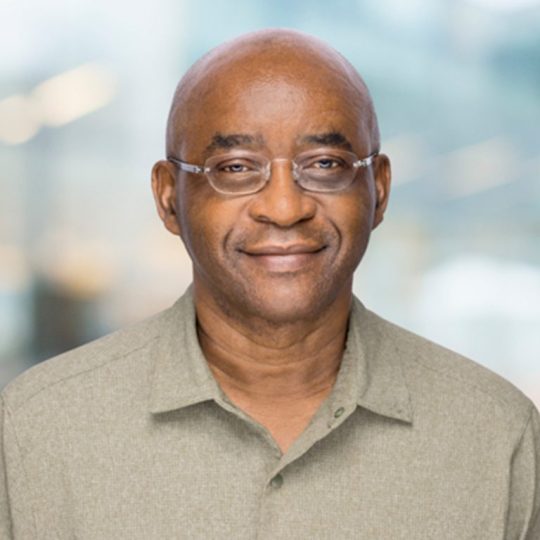
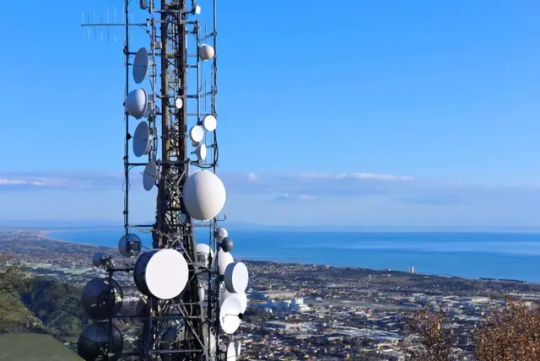
0 notes
Text
2025’s Best Water Heater Options for San Diego Homes – Ranked and Reviewed!

When was the last time the water heater was on your mind? If you are like most people, the thought probably presented itself only when the water ran cold halfway through the showering process. Whether you are building new or renovating, choosing the right heater in 2025 means balancing energy efficiency, capacity, and technology, and of course cost. Especially in sunny San Diego, where homeowners are searching for energy-smart solutions that won't break the bank, choosing just the right unit is a very big deal.
So, what are your best options this year? Let us get to the top water heaters of 2025 for San Diego homes-ranked, reviewed, and simplified just for you.
1. Why Choosing the Right Water Heater Matters
Think of your water heater like the heart of your home's comfort system—it keeps everything warm and running smoothly. The wrong one can lead to energy waste, cold showers, and higher utility bills. Choosing wisely in 2025 not only saves money but also supports sustainable living in eco-conscious cities like San Diego.
2. Types of Water Heaters in 2025
Here are the main categories:
Tankless (On-Demand): Heats water as you use it. No waiting, no standby energy loss.
Storage Tank Heaters: Store hot water in a tank; simple and cost-effective.
Hybrid (Heat Pump): Combines a heat pump with a traditional tank—super energy-efficient.
Solar Water Heaters: Ideal for sunny climates like San Diego.
Condensing Water Heaters: Great for homes with gas heating.
Each type has its pros and cons depending on your household size, budget, and energy goals.
3. Top-Rated Tankless Water Heaters
1. Rinnai RU199iN Super High-Efficiency Plus
Delivers endless hot water.
Up to 96% thermal efficiency.
Compact, space-saving design.
Great for large homes in San Diego with high water demand.
2. Stiebel Eltron Tempra Plus 24 kW
Sleek, German-engineered design.
Digital temperature control.
Perfect for small-to-medium households.
Why choose tankless? It’s like having a water heater that only wakes up when you need it—no energy wasted!
4. Best Traditional Tank Water Heaters
1. AO Smith Signature 50-Gallon Tall
Budget-friendly.
Easy to install and maintain.
Suitable for families of 3–5.
2. Rheem Performance Platinum 50 Gal
Reliable and efficient.
Wi-Fi monitoring through EcoNet App.
Best for those upgrading an older unit.
While they take up more space, tank heaters are straightforward and dependable.
5. Hybrid Water Heaters: Are They Worth It?
Absolutely—if you’re playing the long game.
Best Pick: Rheem ProTerra Hybrid Electric
4x more efficient than traditional units.
Built-in Wi-Fi.
Pays for itself in energy savings.
6. Best Budget-Friendly Models
1. EcoSmart ECO 11 Tankless
Compact and affordable.
Ideal for condos or guesthouses.
Less than $300.
2. Bradford White 40-Gallon Natural Gas Water Heater
Dependable.
Traditional design.
Affordable with solid warranties.
You don’t need to splurge for a hot shower—these picks offer good performance on a budget.
7. High-End Picks for Smart Homes
1. Navien NPE-240S2 Premium Condensing Tankless
Smart technology integration.
High GPM (gallons per minute).
Whisper-quiet operation.
2. Noritz EZ Series
Voice control compatible.
Remote diagnostics.
Sleek, wall-mounted.
These are the Teslas of water heaters—ideal for luxury homes or tech lovers.
8. Energy Efficiency & Eco-Friendly Choices
If you're all about green living, consider these:
Solar Water Heaters like SunEarth Empire Series.
Heat Pump Water Heaters with ENERGY STAR® ratings.
Units with low-NOx emissions, mandatory in San Diego County.
Energy-efficient models reduce your carbon footprint and often qualify for rebates or tax credits.
9. Factors to Consider Before Buying
Think about this before pulling the trigger:
Household size
Water usage habits
Installation space
Energy source (gas, electric, solar)
Initial vs. long-term costs
Choosing a water heater is like picking shoes—fit matters. Too small? You’ll run out of hot water. Too big? You’ll waste energy and money.
10. Local Water Quality and Installation Tips
San Diego has hard water, which can impact your water heater's longevity. Look for:
Models with built-in scale reduction systems.
Regular descaling to maintain efficiency.
Pro Tip: Always use licensed plumbers for water heater installation in San Diego to ensure code compliance and safety.
11. Installation Costs in San Diego
Here's a rough estimate:
Tank Water Heater: $600 – $1,200
Tankless Water Heater: $1,000 – $2,500
Hybrid Models: $1,500 – $3,500
Solar Water Heater: $3,000 – $5,000+
Don’t forget to factor in permits and inspections, which are mandatory in many areas of San Diego.
12. Top Brands to Trust in 2025
Stick to names with proven reputations:
Rheem
AO Smith
Rinnai
Navien
Bradford White
Stiebel Eltron
Noritz
These brands offer top-tier warranties, tech support, and durable parts.
13. Warranty and Maintenance Considerations
Typical warranties range from 6 to 12 years. Look for:
Full coverage vs. parts-only.
Customer service availability.
Local support centers in San Diego.
Maintenance tips:
Flush tank models annually.
Check for leaks or rust.
Clean filters on tankless units.
14. Where to Buy in San Diego
Reliable local retailers include:
Home Depot San Diego
Ferguson Bath, Kitchen & Lighting Gallery
Lowe’s
Pacific Sales Appliance Experts
EZ Plumbing USA (offers Water Heater Installation San Diego and free consultation)
Buying locally ensures faster delivery, in-person support, and easier returns.
15. Final Verdict: Best Overall Pick
If we had to crown a winner…
Rinnai RU199iN is 2025’s best all-around water heater for San Diego homes.
Why?
Top energy efficiency.
Endless hot water supply.
Compact and modern.
Backed by solid warranties and great support.
Whether you’re a solo dweller or a family of five, this model checks all the boxes for comfort, savings, and sustainability.
Conclusion
Water heater shopping doesn’t have to feel like decoding rocket science. Whether you’re eco-minded, budget-conscious, or after all the bells and whistles, there’s a perfect match out there for you in 2025. And in a city like San Diego, where sun, salt, and style intersect—choosing the right unit means more than just hot water.
For expert help and seamless Water Heater Installation in San Diego, trust local professionals who understand your needs, your neighborhood, and your plumbing system.
EZ Plumbing USA offers 24/7 professional plumbing services across San Diego, Orange County, and Riverside. They specialize in leak detection, emergency repairs, and water heater services for homes and businesses. Contact us for more information.
View Source- https://ezplumbingusaorangecounty.wordpress.com/2025/04/22/2025s-best-water-heater-options-for-san-diego-homes-ranked-and-reviewed/
0 notes
Text
Heads roll at Steward Bank
The developments comes barely two months after former Steward Bank chief executive officer (CEO), Kwanele Ngwenya, was forced out of the banking institution after the board of directors refused to renew his contract due to corporate governance malfeasance.
It also comes barely a month after the bank announced the resignation of Bright Mahere, its former chief finance officer under a cloud. This time, the axe has fallen on the bank’s head of operations, Naison Sebstain, and Freeman Dhliwayo, who was in charge of the Information Technology department. The two are said to have been well- placed within the bank to have detected and foiled the alleged fraud, which involved the creation of fictitious accounts meant to swindle the bank. The accounts were reportedly used to buy air tickets and goods in foreign countries. A significant amount was also withdrawn for other personal use from the credit accounts.
Stewart Bank’s acting CEO, Lance Mambondiani, yesterday said the two had been suspended subject to ongoing internal procedures and could not comment on the issue further. A former employee, Albert Chinamano (35), has since appeared before magistrate Milton Serima over the credit cards which he allegedly used bearing names of non-existing clients. Chinamano, who resides in Borrowdale, Harare, was found in possession of 150 credit cards when he was arrested.
He is alleged to have committed the offence between March last year and January this year. The offence came to light when the bank was conducting routine checks on its clients. Some executives said the bank was going through a “clean-up” exercise to get rid of officials who held offices that could have picked the allegedly crimes. The board is said to have been unhappy with the bank’s bad book and the level of non-performing loans. Steward Bank is a medium-sized retail bank that has been in existence for more than six years.
The bank was established in 2009, as a commercial bank. Prior to that, it had existed as a finance house since 1999. In 2006, the bank, executed a merger with Trustfin Financial Services Limited. In December 2009, TNFH, the holding company of TN Bank, successfully completed a reverse merger with Tedco, another Zimbabwean enterprise, to form TN Holdings, the parent company of the TN Group of Companies. TN Holdings Limited, besides owning TN Financial Limited, the parent company of TN Bank, also owns TN Medical, an owner-operator of medical facilities including a medical insurance subsidiary, TN Asset Management and TN Harlequin, an upscale home and office furnishings manufacturer and distributor, among other interests.
In July 2012 Econet Wireless, the largest mobile telephone provider in Zimbabwe, acquired 45 percent shareholding in the bank. In February 2013, Econet acquired the remaining 55 percent shareholding, thereby turning TN Bank into a 100 percent subsidiary of the mobile phone company.
At that time the shares of the bank were de-listed from the Zimbabwe Stock Exchange. Following the divesture from TN Bank, TN Holdings Limited rebranded to Lifestyle Holdings Limited. In July 2013, TN Bank rebranded to Steward Bank and began a series of reforms to separate itself from its former owners, including setting up a new board of directors, creating a new corporate logo, launching a new website and relocating its branches away from Lifestyle Holdings locations.
0 notes
Photo

Africa’s billionaires have reached an impressive milestone, with their collective fortune now surpassing $100 billion for the first time. A total of 22 individuals have secured spots on Forbes’ 2025 Billionaires List, marking a remarkable leap from last year’s total of $82.4 billion. This surge in wealth is particularly striking given the continent’s ongoing economic challenges, ranging from currency fluctuations and political instability to shifting consumer markets. Yet, Africa’s wealthiest have managed to thrive, leveraging strategic investments, tapping into global market trends, and capitalizing on resilient industries. Leading the pack once again is Nigeria’s Aliko Dangote, who has held the title of Africa’s richest man for an astounding 14th consecutive year. He is joined by prominent figures such as South African luxury magnate Johann Rupert and Egyptian construction mogul Nassef Sawiris. While some billionaires made a powerful comeback this year, others faced financial setbacks. Below is the full list, ranked in ascending order of wealth. Here are the Africans who made Forbes’ 2025 Billionaires list… #22. Strive Masiyiwa ($1.2 Billion) – Zimbabwe (Telecom) Photo: Gates Foundation Strive Masiyiwa, the founder of Econet Wireless, remains Zimbabwe’s wealthiest individual, despite facing a recent financial dip. His fortune was significantly impacted by Zimbabwe’s decision to replace its currency with the gold-backed ZiG, which led to economic instability. Nevertheless, Masiyiwa’s telecommunications empire, which spans multiple African nations, continues to expand, offering mobile services, broadband, and financial solutions. Beyond his business success, Masiyiwa is also known for his philanthropic efforts, particularly in supporting education initiatives across the continent. #21. Yasseen Mansour ($1.2 Billion) – Egypt (Diversified) Photo: Forbes Middle East Yasseen Mansour is one of the three billionaire brothers behind Egypt’s Mansour Group, a diversified multinational corporation. His wealth is rooted in the group’s expansive portfolio, which spans consumer goods, automotive distribution, and real estate. As the exclusive distributor of Caterpillar machinery in Egypt and several other African markets, the Mansour Group holds a commanding presence. Additionally, Yasseen has made strategic investments in luxury real estate projects in both Egypt and Europe, further bolstering his financial empire. #20. Youssef Mansour ($1.4 Billion) – Egypt (Diversified) Photo: Afrique Buzz The eldest of the Mansour brothers, Youssef Mansour, oversees the group’s retail and distribution sector. A key architect of the company’s expansion, he has spearheaded partnerships with global giants like General Motors and McDonald’s, significantly broadening the group’s footprint. Youssef’s fortune has flourished alongside Egypt’s growing consumer market, with the Mansour Group’s increasing influence solidifying its dominant role in North Africa’s economy. #19. Christoffel Wiese ($1.5 Billion) – South Africa (Fashion & Retail) Photo: Forbes Christoffel Wiese, a retail mogul, has amassed significant wealth through his investments in Shoprite and Pepkor, cementing his position as one of South Africa’s wealthiest individuals. While his fortune took a hit following the collapse of Steinhoff International in 2017, Wiese has made a remarkable recovery. His retail empire remains resilient, continuing to serve millions of consumers across Africa with affordable goods and services. #18. Femi Otedola ($1.5 Billion) – Nigeria (Energy) Photo: FBN Holdings Plc. Femi Otedola stands as one of Nigeria’s most influential businessmen, with his fortune largely derived from the energy sector. As the chairman of Geregu Power Plc, Nigeria’s first publicly listed power generation company, Otedola has seen his wealth rise, especially with the recent surge in Geregu’s stock. In addition to his energy investments, he has expanded his portfolio into financial services, real estate, and philanthropy, further solidifying his position as a prominent figure in both business and charitable efforts. #17. Jannie Mouton & Family ($1.5 Billion) – South Africa (Finance & Investments) Photo: MoneyWeb Jannie Mouton, the visionary founder of PSG Group, has reclaimed his spot among Africa’s billionaires, marking a remarkable financial resurgence. His wealth surged following a 59% rise in the stock price of Capitec Bank, one of South Africa’s most successful and innovative banking institutions. Beyond banking, Mouton’s investment firm maintains strategic interests in agribusiness, education, and private equity, reinforcing his influence in South Africa’s evolving financial landscape. #16. Aziz Akhannouch & Family ($1.5 Billion) – Morocco (Diversified) Photo: AFSIC Aziz Akhannouch, Morocco’s prime minister and a powerhouse in business, has amassed his fortune through Akwa Group, a dominant player in North Africa’s energy and gas sector. As Morocco continues to expand its energy infrastructure and oil distribution networks, his wealth has steadily grown. Despite his political responsibilities, Akhannouch remains one of the region’s most influential and strategic business leaders. #15. Anas Sefrioui & Family ($1.6 Billion) – Morocco (Real Estate) Photo: Forbes Middle East Anas Sefrioui, a real estate mogul, has made a striking comeback to the billionaire ranks this year. His company, Douja Promotion Groupe Addoha, experienced a surge in stock value, more than doubling due to a spike in home sales across Morocco. Sefrioui’s expertise in affordable housing has solidified his status as a driving force in Morocco’s urban development, catering to the country’s growing demand for residential spaces. #14. Othman Benjelloun & Family ($1.6 Billion) – Morocco (Finance & Investments) Photo: Forbes Middle East Othman Benjelloun, a powerhouse in Morocco’s financial sector, has built his fortune through BMCE Bank, one of the country’s largest financial institutions. Beyond banking, his wealth extends into insurance, telecommunications, and infrastructure investments across Africa. A visionary leader, Benjelloun has been instrumental in expanding financial services throughout the continent, strengthening Morocco’s position as a key player in African banking. #13. Michiel Le Roux ($2.2 Billion) – South Africa (Finance & Investments) Photo: Business Empire Michiel Le Roux, the visionary founder of Capitec Bank, has transformed South Africa’s banking landscape by providing low-cost, accessible financial services to millions. His innovative approach to retail banking has made Capitec one of the country’s most profitable financial institutions. As the bank’s market value continues to climb, so does Le Roux’s fortune, solidifying his place among Africa’s wealthiest individuals. #12. Mohammed Dewji ($2.2 Billion) – Tanzania (Diversified) Photo: The World Economic Forum Forty-four-year-old Mohammed Dewji, Africa’s youngest billionaire, leads METL Group, a Tanzanian powerhouse with diverse interests in manufacturing, agriculture, and distribution. Operating in over 11 countries, his business empire continues to drive industrial growth across Tanzania and beyond. Beyond his corporate success, Dewji is also a dedicated philanthropist, channeling substantial funds into education and healthcare initiatives to uplift communities. #11. Issad Rebrab & Family ($3 Billion) – Algeria (Food & Beverage) Photo: Forbes Middle East Issad Rebrab, Algeria’s richest man, is the founder of Cevital, the country’s largest privately owned conglomerate. With a strong foothold in food processing, retail, and industrial equipment manufacturing, Cevital has solidified its dominance in the Algerian market. Rebrab’s strategic investments in European food processing companies have further expanded his wealth, reinforcing his position as one of Africa’s most influential business leaders. #10. Patrice Motsepe ($3 Billion) – South Africa (Metals & Mining) Photo: Britannica Patrice Motsepe, the founder of African Rainbow Minerals, has built his fortune through strategic investments in the mining sector, particularly in gold and platinum. Beyond mining, he has expanded his business empire into banking and sports management. As the current president of the Confederation of African Football (CAF), Motsepe plays a crucial role in shaping the future of African football while continuing to grow his wealth through lucrative ventures. #9. Mohamed Mansour ($3.4 Billion) – Egypt (Diversified) Photo: Business Empires Mohamed Mansour, the third of the Mansour brothers, is a key figure in Egypt’s business landscape. He oversees a diverse portfolio spanning construction, retail, and automotive industries. Under his leadership, the Mansour Group has secured exclusive distribution rights for General Motors in multiple African countries, solidifying its dominance in the region’s automotive market. #8. Koos Bekker ($3.4 billion) – South Africa (Media & Entertainment) Photo: AFSIC Koos Bekker is celebrated for transforming Naspers into a global e-commerce giant and media powerhouse. His visionary leadership led Naspers to make a game-changing investment in Tencent, the Chinese internet and entertainment behemoth, a move that skyrocketed the company’s—and Bekker’s—wealth. His sharp acumen in media and technology investments continues to cement his status as one of Africa’s most influential billionaires. #7. Naguib Sawiris ($5 Billion) – Egypt (Telecom) Photo: Arab Thought Naguib Sawiris built his fortune in telecommunications and later expanded into gold mining and media. His strategic investments in global tech startups and luxury real estate have ensured his continued position among Africa’s wealthiest billionaires. Sawiris’ ability to diversify and adapt has solidified his influence in both the African and global business landscapes. #6. Abdulsamad Rabiu ($5.1 Billion) – Nigeria (Diversified) Photo: Nairametrics Abdulsamad Rabiu is the founder of BUA Group, a leading force in Nigeria’s cement, sugar, and real estate sectors. Through continued expansion in infrastructure and industrial production, BUA Group has played a key role in boosting Rabiu’s fortune. His strategic investments in various industries have positioned him as one of Nigeria’s wealthiest and most influential business figures. #5. Mike Adenuga ($6.8 billion) – Nigeria (Diversified) Photo: Enterpreneures.ng Mike Adenuga is the founder of Globacom, Nigeria’s second-largest telecommunications operator, which has expanded its reach across West Africa. In addition to telecom, Adenuga has substantial investments in the oil sector through his stake in Conoil, as well as extensive real estate holdings. His diverse portfolio of successful ventures has been pivotal in his rise to wealth, cementing his place as one of Nigeria’s most influential business magnates. #4. Nassef Sawiris ($9.6 billion) – Egypt (Construction & Engineering) Photo: Bloomberg Nassef Sawiris, a scion of Egypt’s wealthiest family, has built a vast fortune through strategic investments in industries such as construction, chemicals, and sports. Notably, he holds substantial stakes in OCI N.V., a leading global nitrogen fertilizer producer, as well as in Adidas, which has further bolstered his wealth. Additionally, Sawiris’ diversified portfolio and keen investment strategies have not only strengthened his financial standing but also solidified his position as one of Africa’s wealthiest and most influential figures. #3. Nicky Oppenheimer & Family ($10.4 billion) – South Africa (Metals & Mining) Photo: Robert Tshabalala Nicky Oppenheimer, heir to the De Beers diamond fortune, is a prominent figure in both the business and conservation worlds. His family’s legacy in the global diamond trade was solidified for decades until 2012, when Oppenheimer sold his family’s 40% stake in De Beers for a staggering $5.1 billion. Beyond his business acumen, Oppenheimer is deeply committed to environmental conservation, with significant efforts in preserving nature through the establishment of nature reserves across Africa. This dual focus on business and environmental stewardship highlights his enduring influence and legacy. #2. Johann Rupert & Family ($14.0 billion) – South Africa (Fashion & Retail) Photo: Richemont Johann Rupert, the chairman of Compagnie Financière Richemont, which is renowned for luxury brands like Cartier and Montblanc, continues to solidify his status as one of Africa’s wealthiest individuals. His fortune has experienced a significant surge, increasing by 39% to reach $14 billion, making it the second-largest gain among African billionaires. Since 2022, Rupert has held his position as the second-richest African, a testament to his enduring influence and leadership in the luxury goods sector. #1. Aliko Dangote ($23.9 billion) – Nigeria (Manufacturing) Photo: The CEO Magazine Aliko Dangote, Africa’s richest billionaire for the 14th consecutive year, has seen his net worth skyrocket to $23.9 billion, up from $13.9 billion in 2024. This remarkable growth can largely be attributed to the successful launch of his oil refinery on the outskirts of Lagos, which began operations in early 2024 and is set to reach full capacity in April 2025. The refinery’s success represents a transformative moment for Nigeria, positioning the country to export refined petroleum products and reduce its dependency on imports. In addition to his accomplishments in oil, Dangote’s diversified conglomerate continues to dominate Africa’s cement, sugar, and flour production industries. For the latest in fashion, lifestyle, and culture, follow us on Instagram @StyleRave_—Read Also !function(f,b,e,v,n,t,s) if(f.fbq)return;n=f.fbq=function()n.callMethod? n.callMethod.apply(n,arguments):n.queue.push(arguments); if(!f._fbq)f._fbq=n;n.push=n;n.loaded=!0;n.version='2.0'; n.queue=[];t=b.createElement(e);t.async=!0; t.src=v;s=b.getElementsByTagName(e)[0]; s.parentNode.insertBefore(t,s)(window, document,'script', ' fbq('init', '496558104568102'); fbq('track', 'PageView'); !function(f,b,e,v,n,t,s)if(f.fbq)return;n=f.fbq=function()n.callMethod? n.callMethod.apply(n,arguments):n.queue.push(arguments);if(!f._fbq)f._fbq=n; n.push=n;n.loaded=!0;n.version='2.0';n.queue=[];t=b.createElement(e);t.async=!0; t.src=v;s=b.getElementsByTagName(e)[0];s.parentNode.insertBefore(t,s)(window, document,'script',' fbq('init', '1453079628754066'); fbq('track', "PageView"); Source link
0 notes
